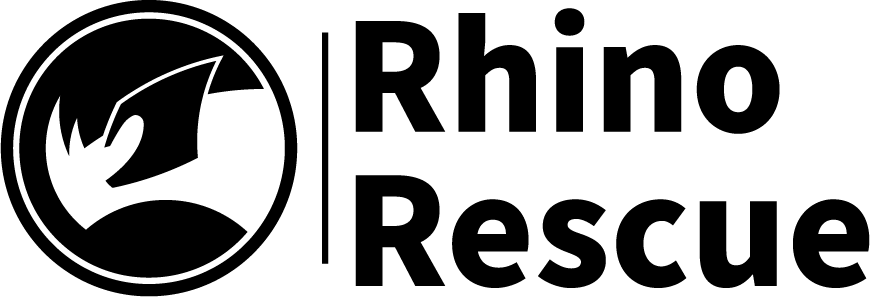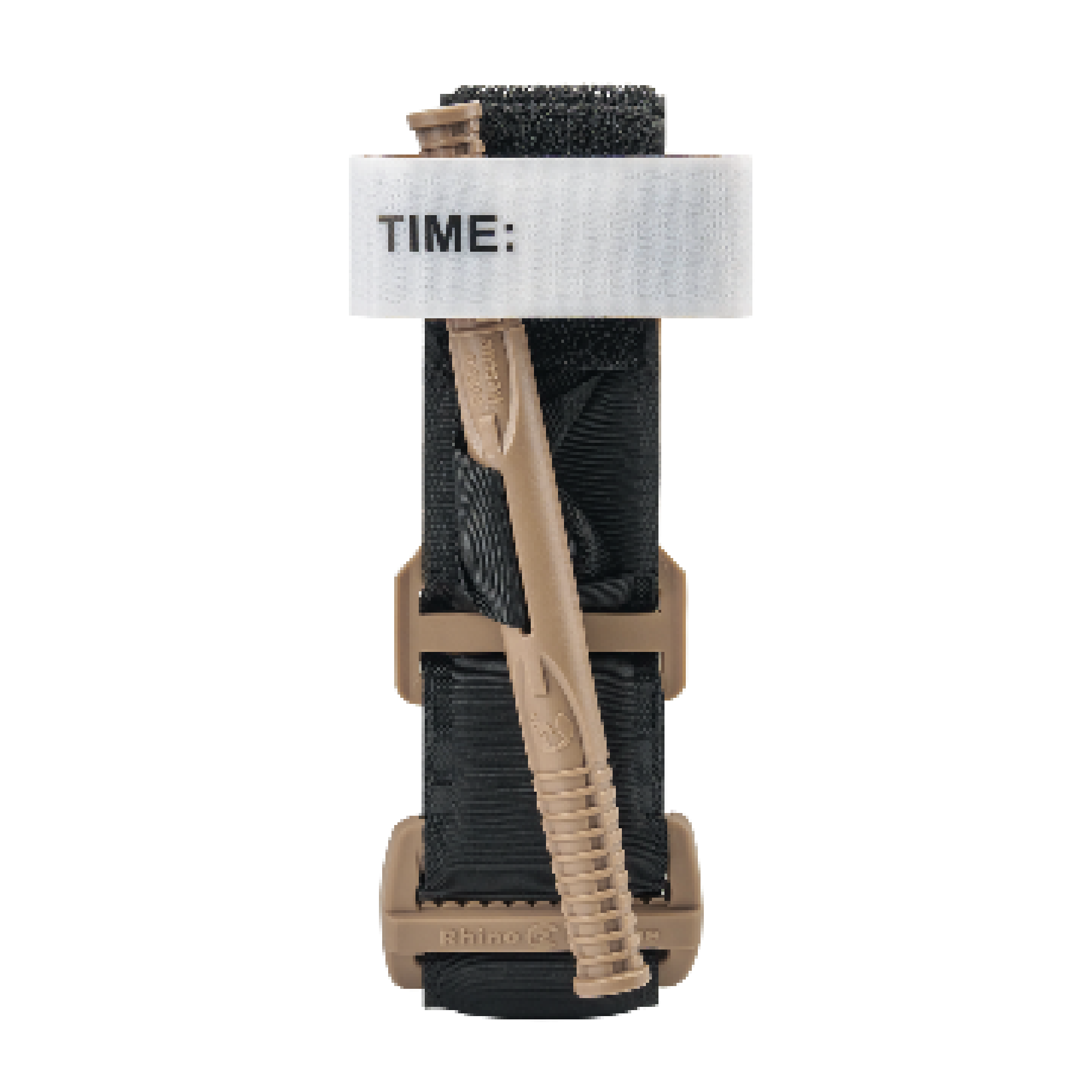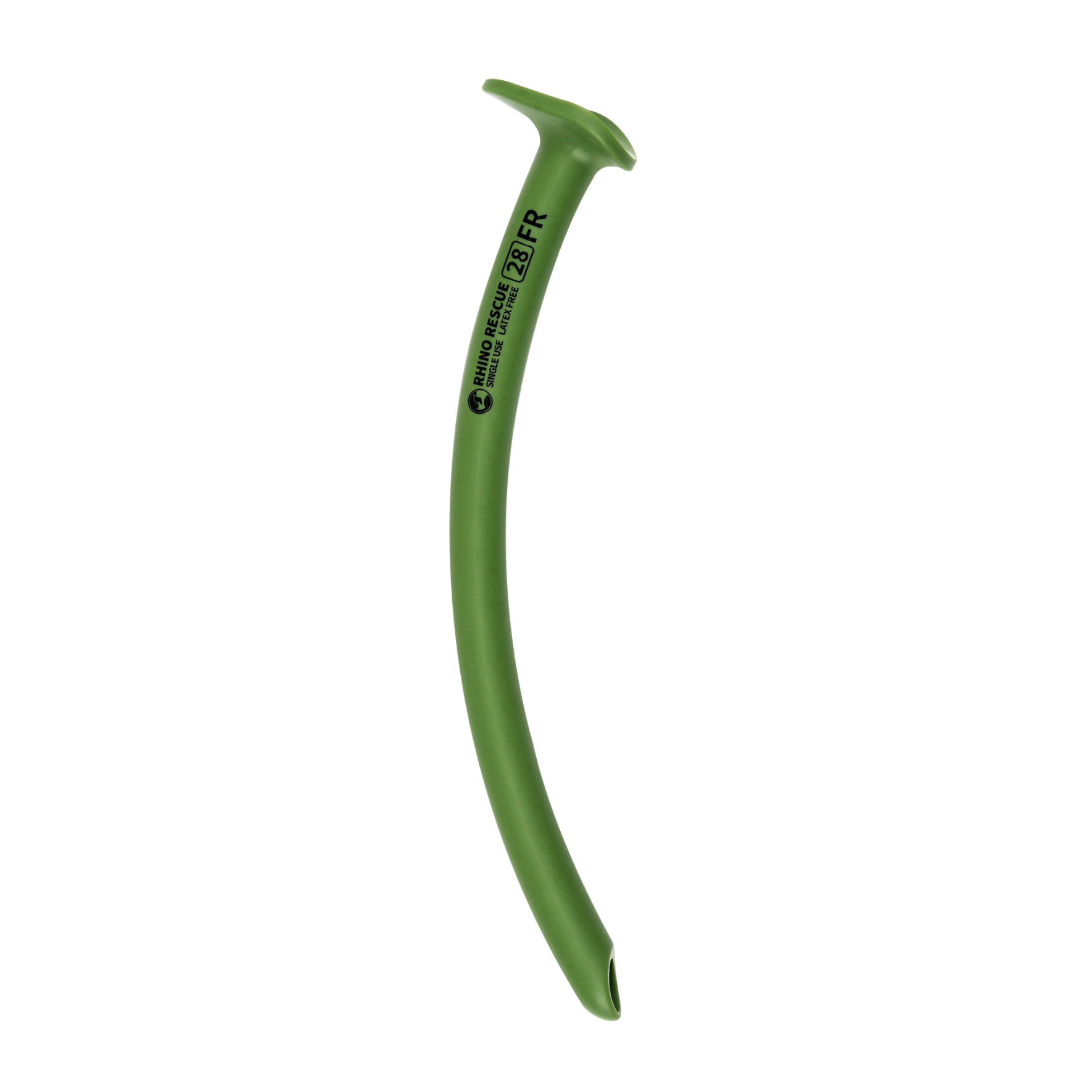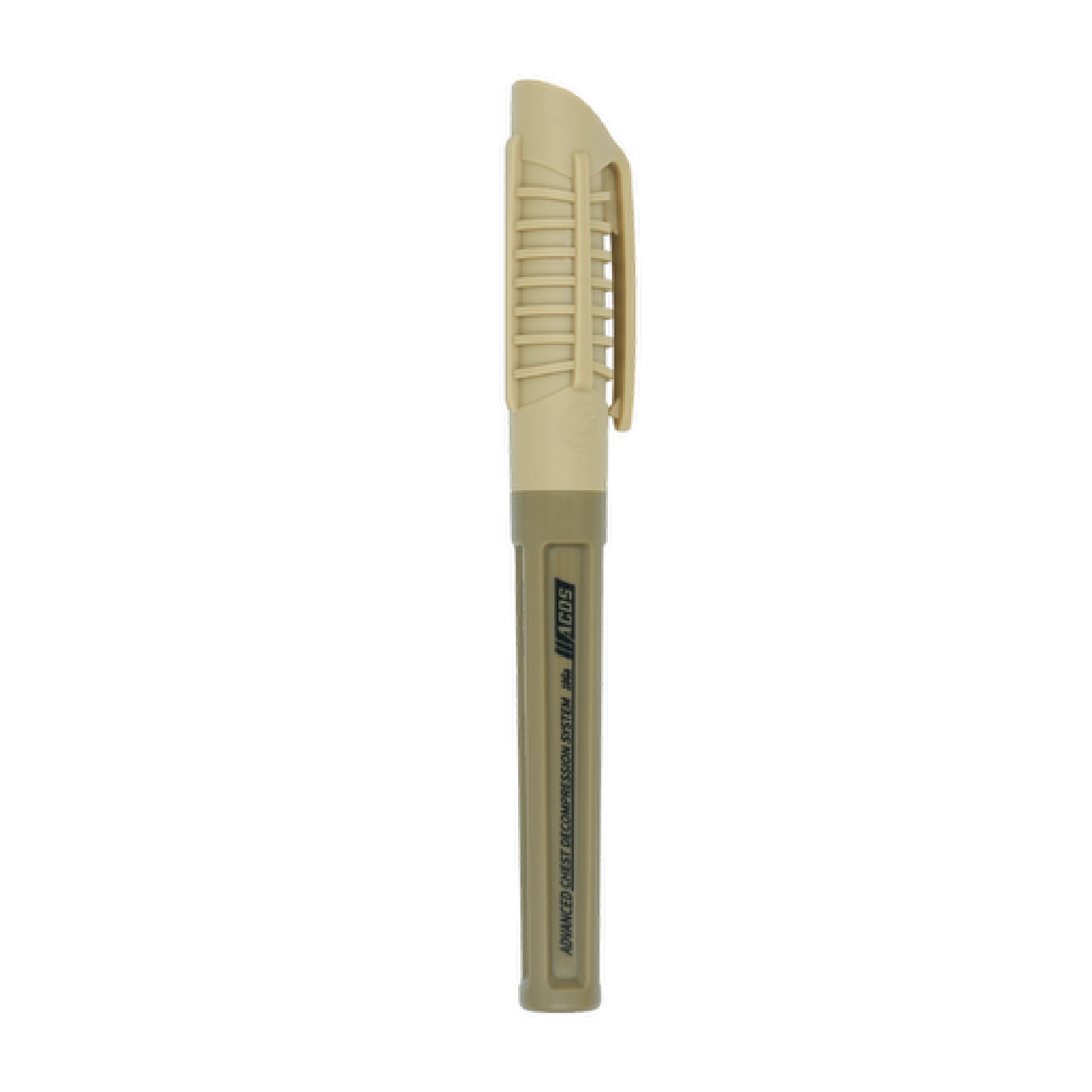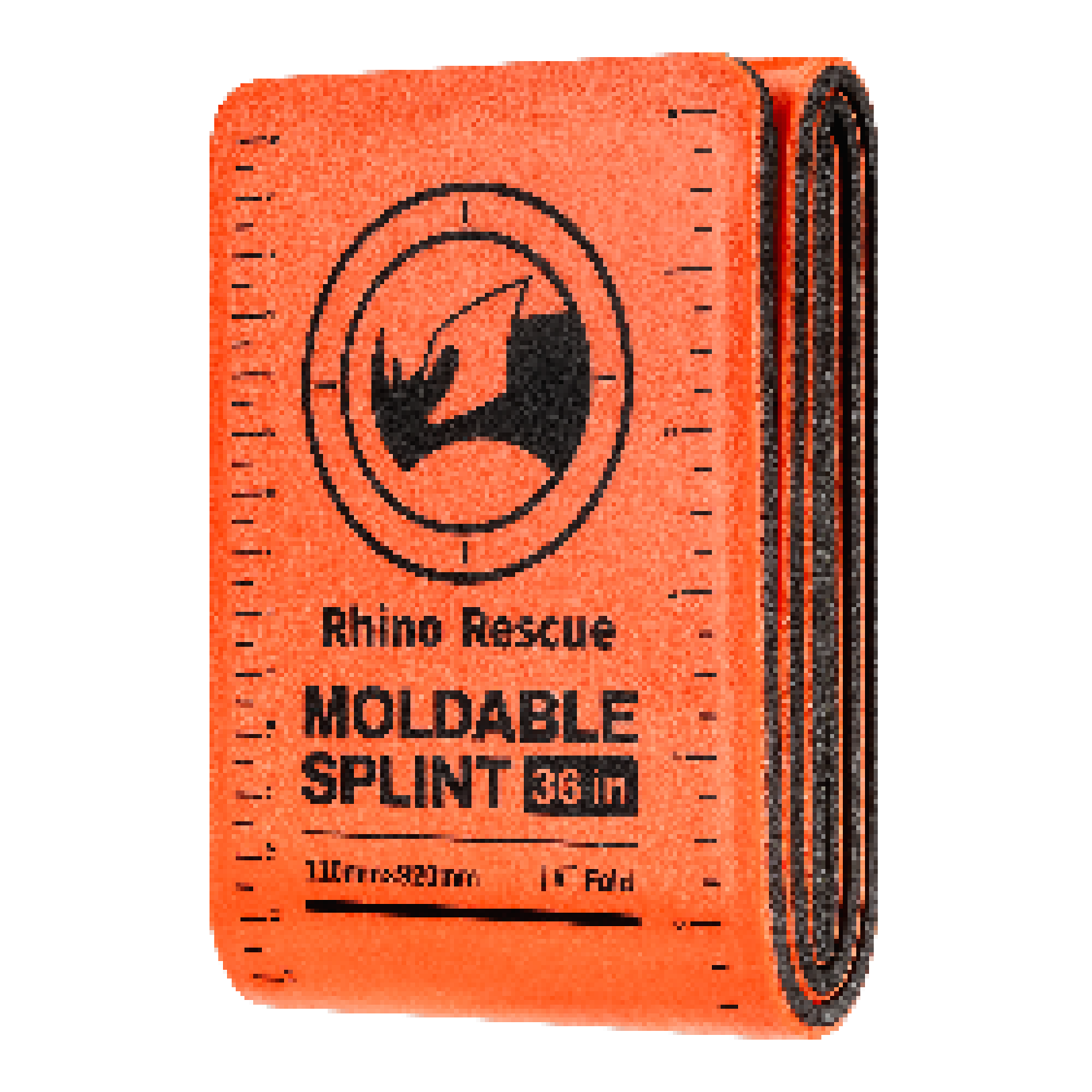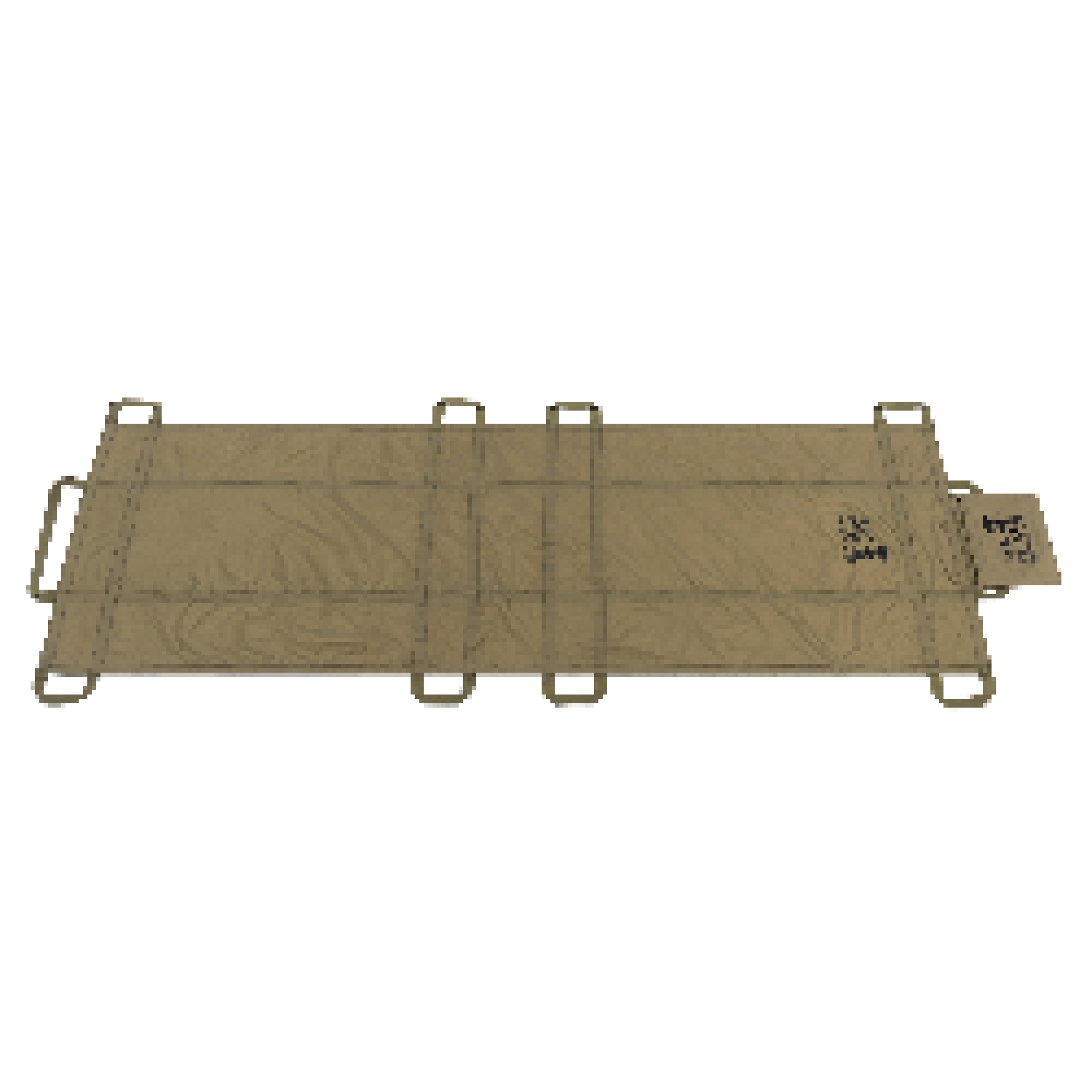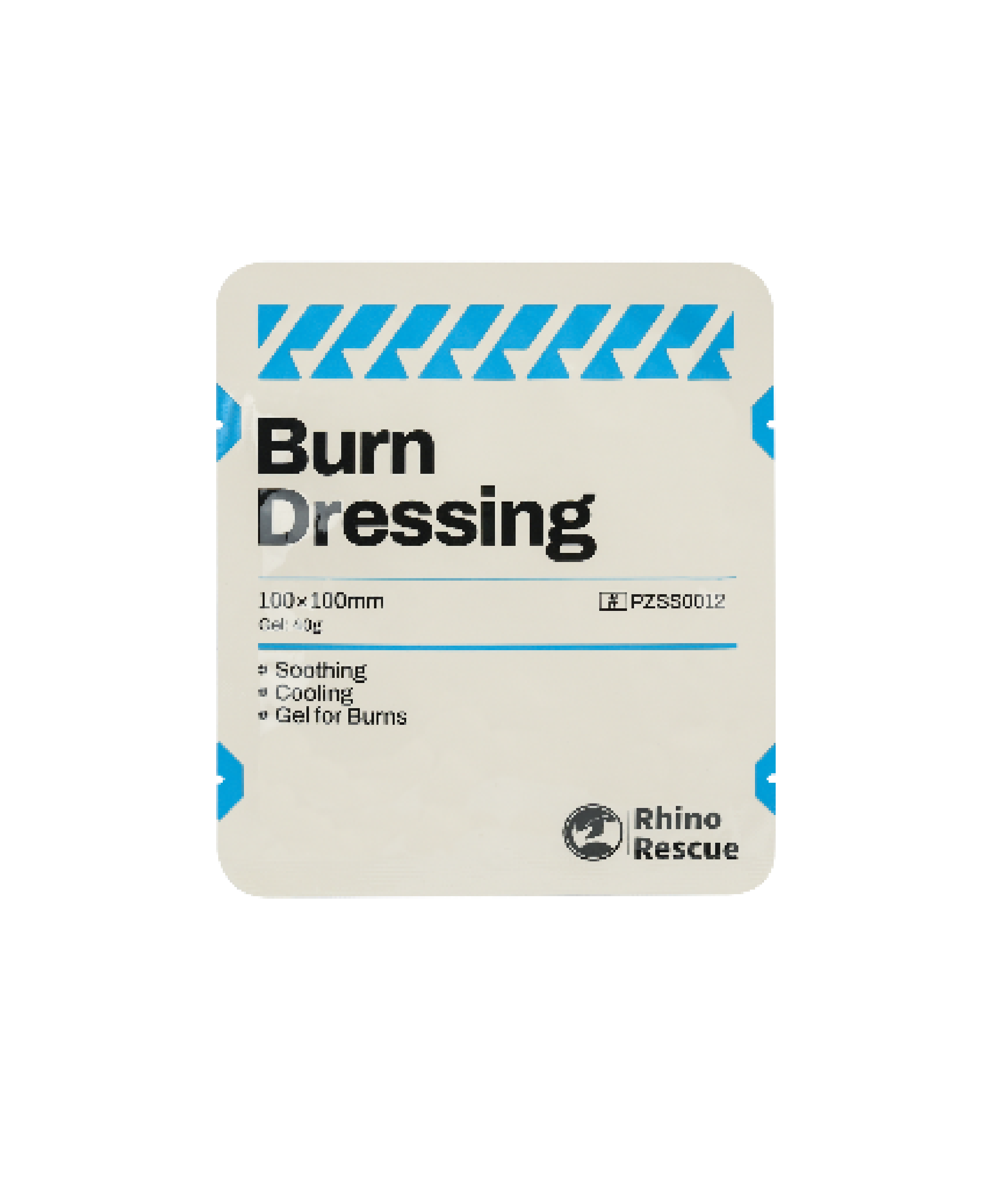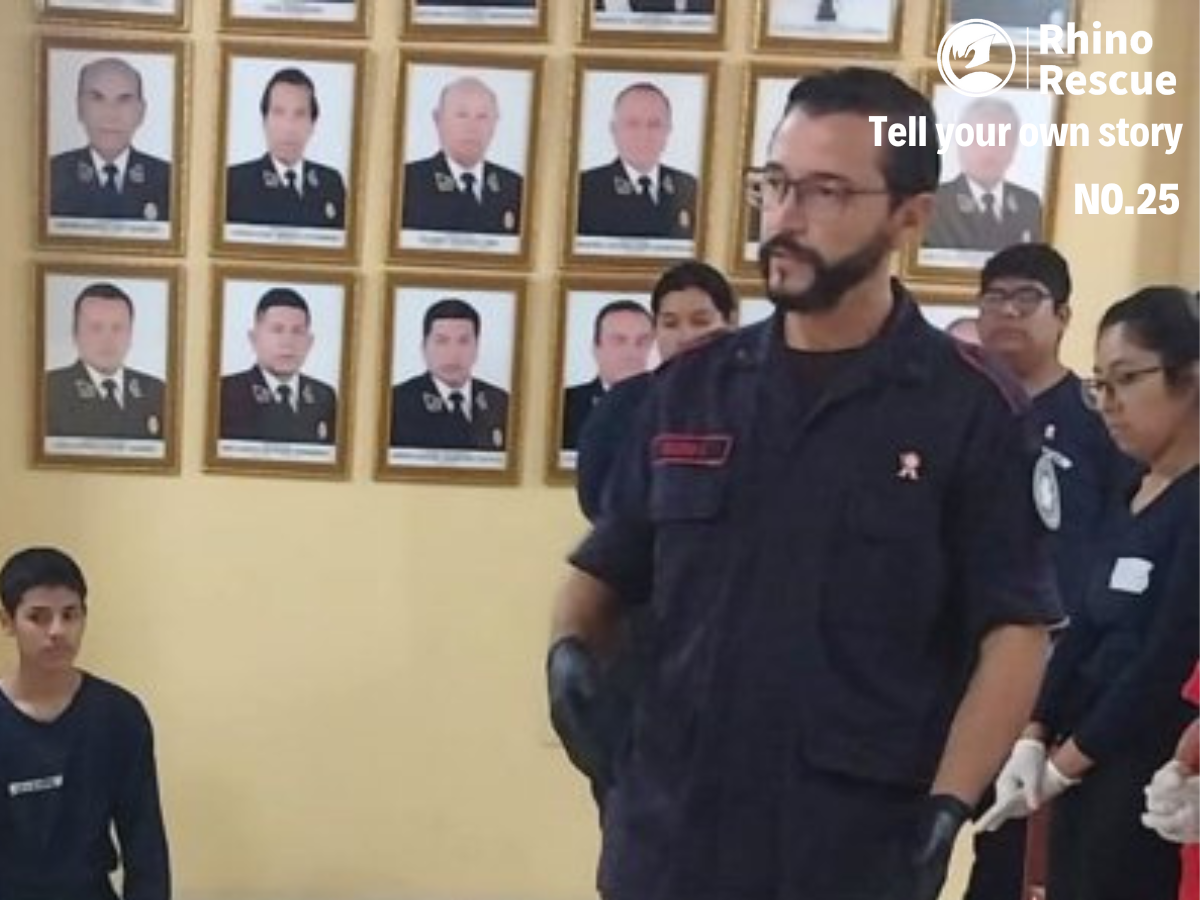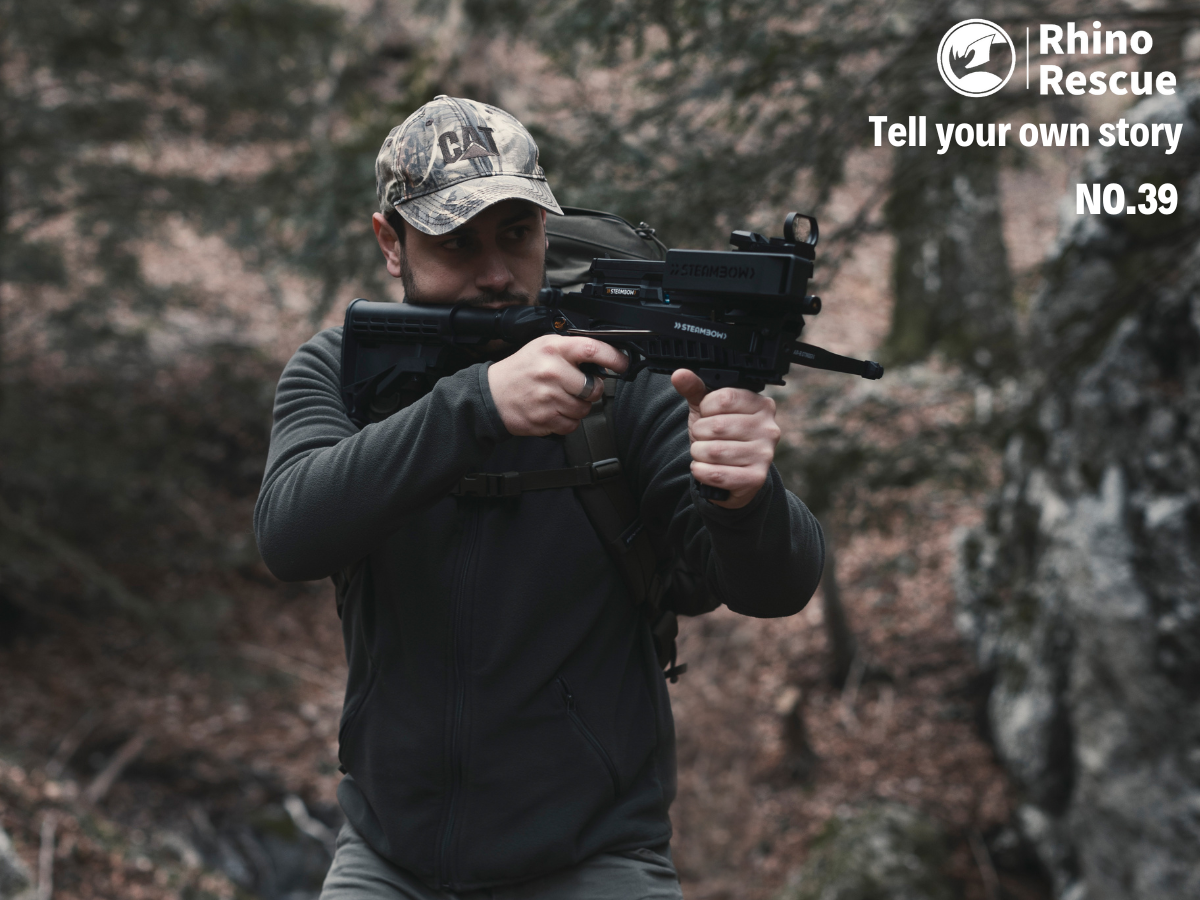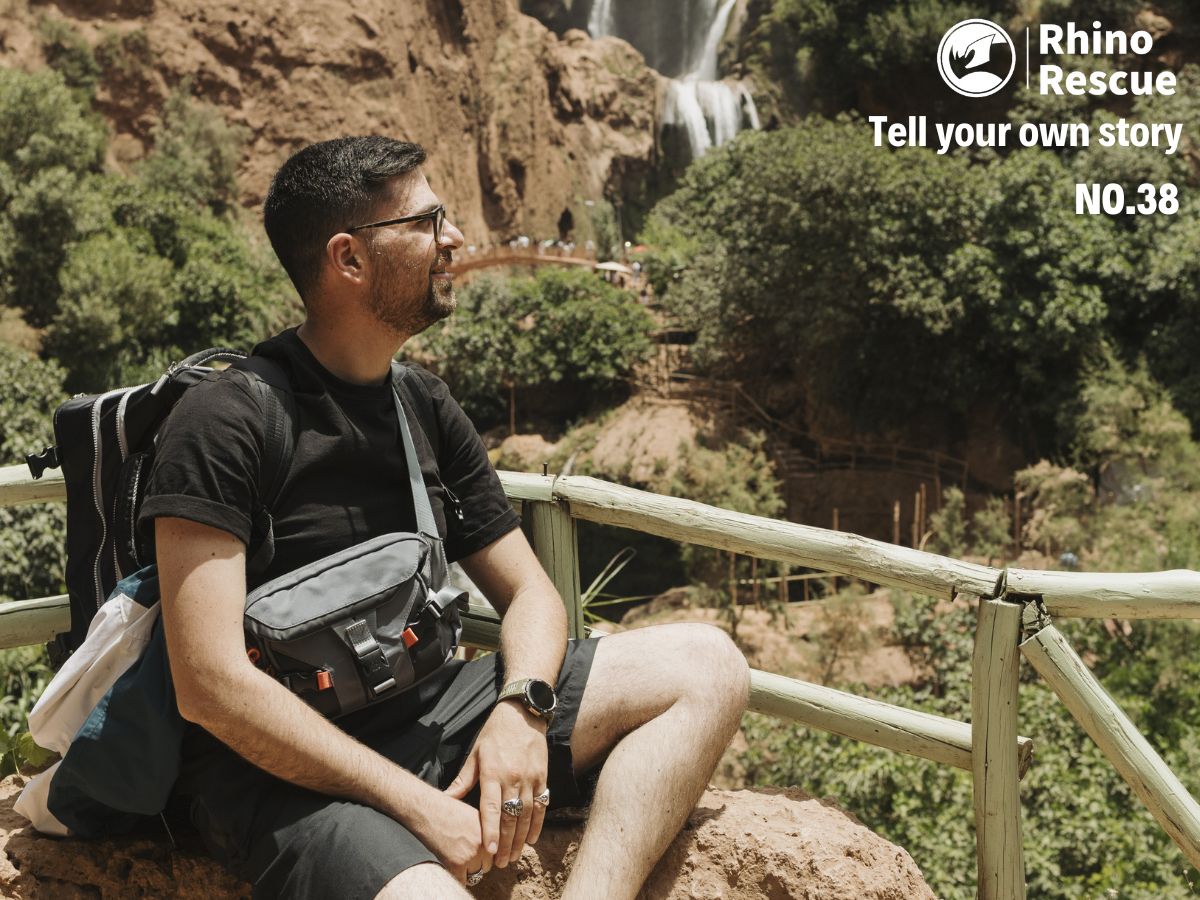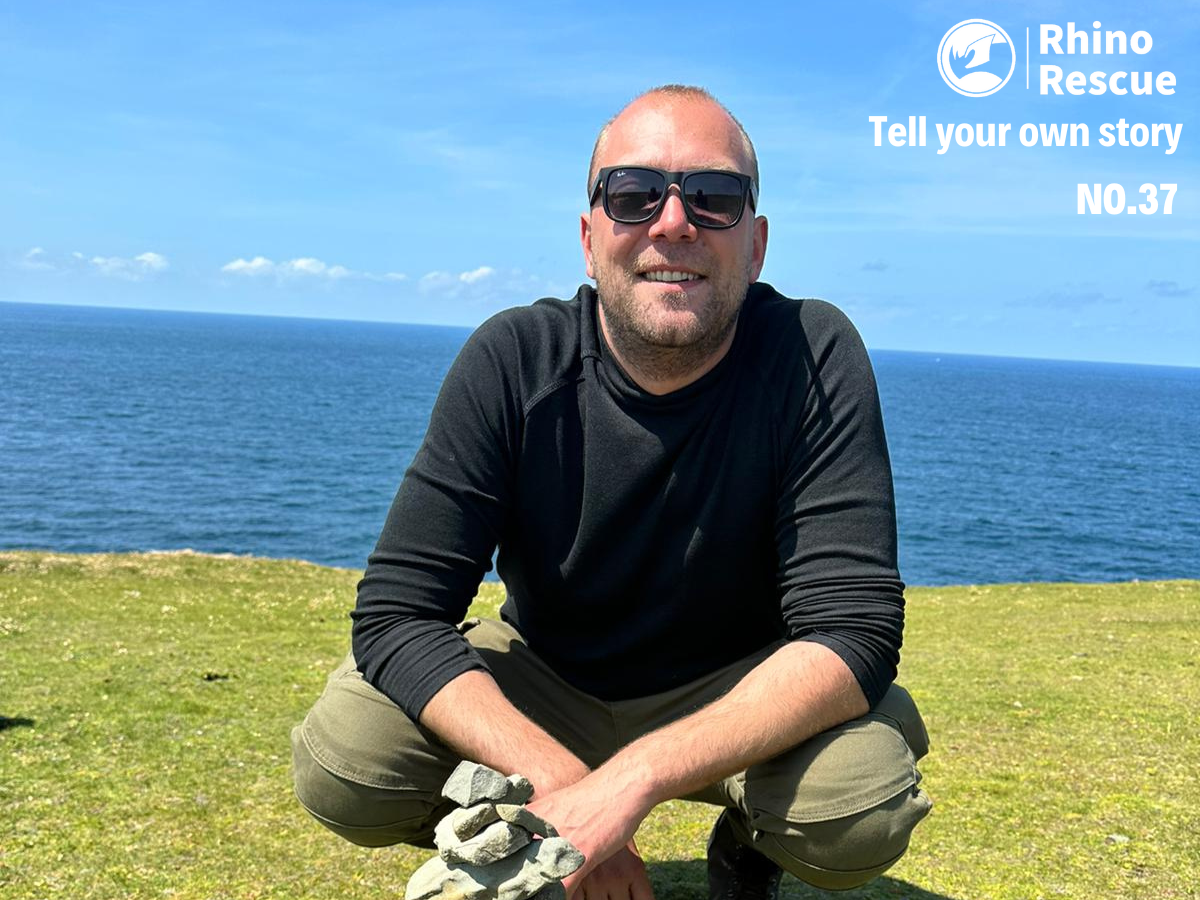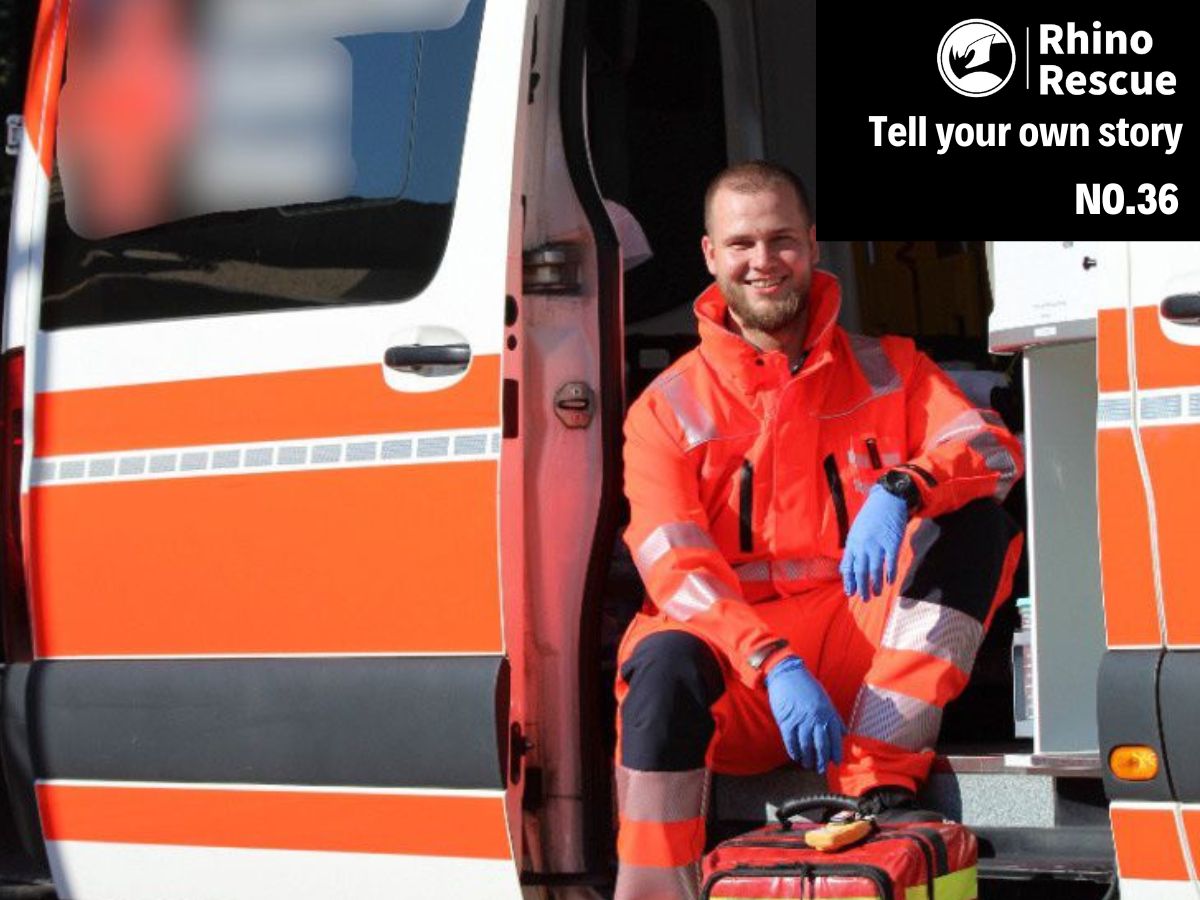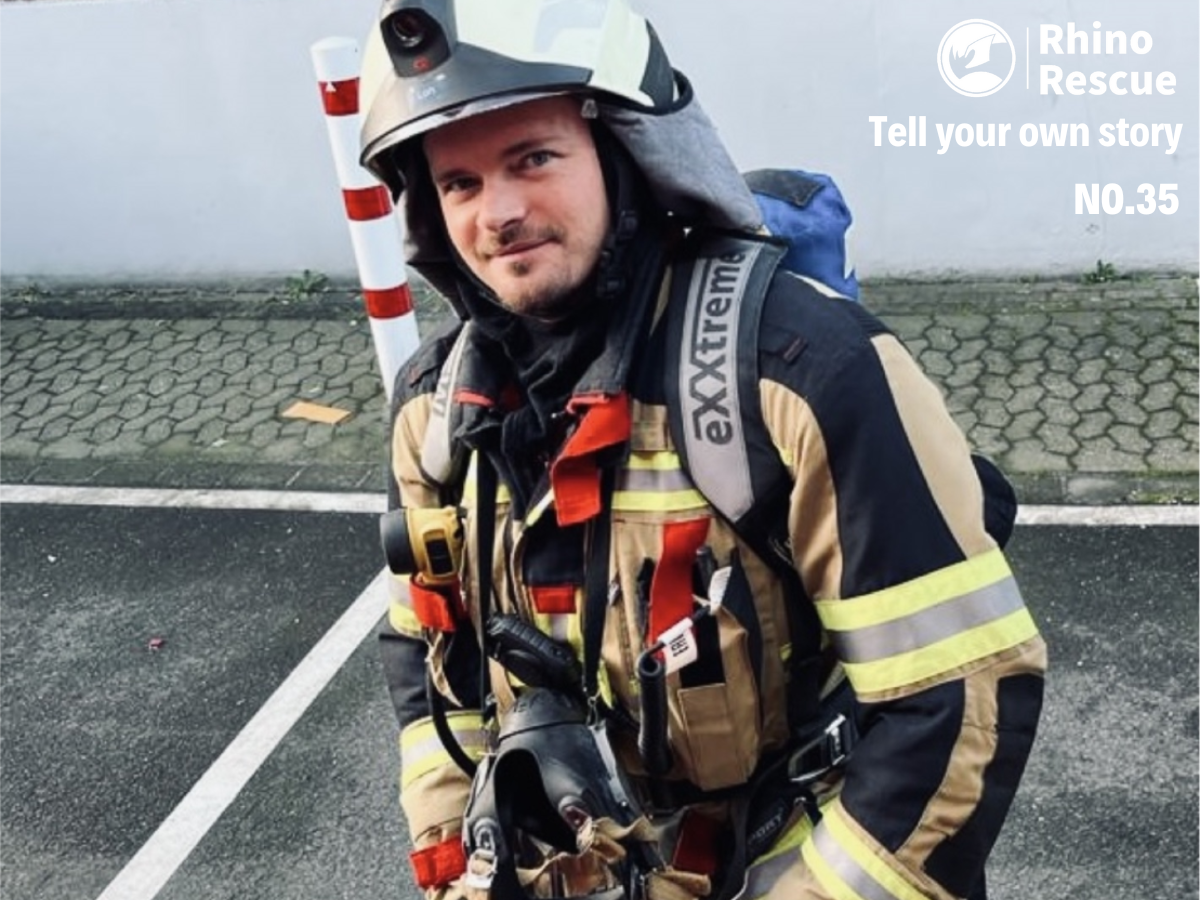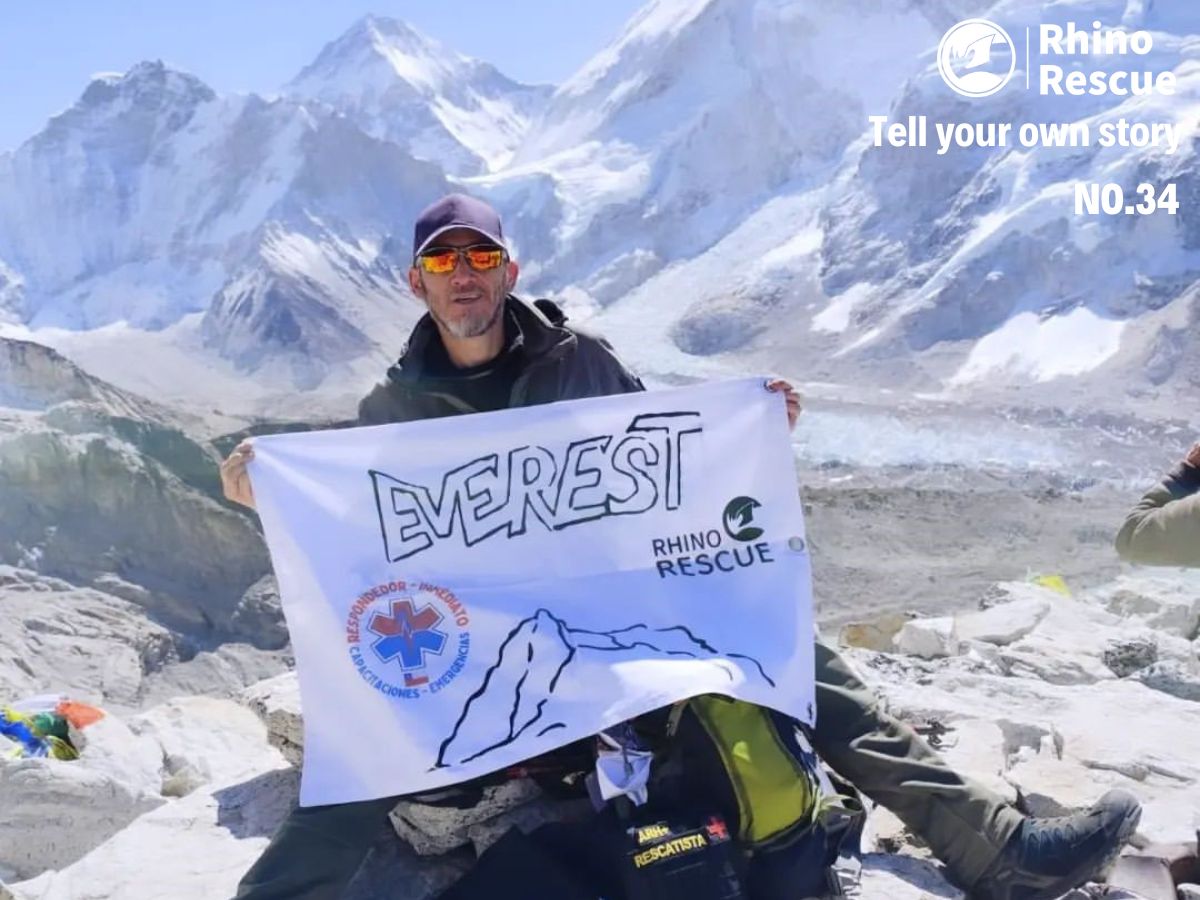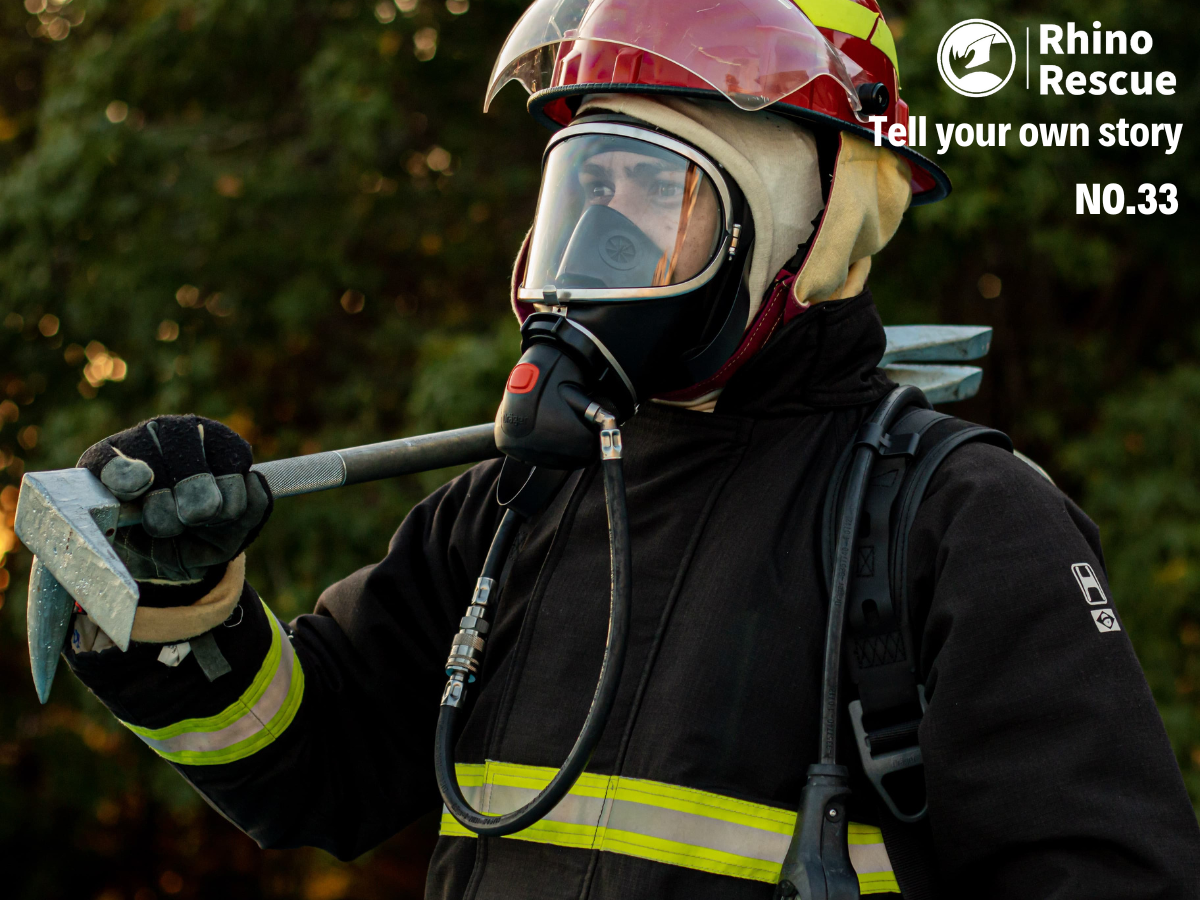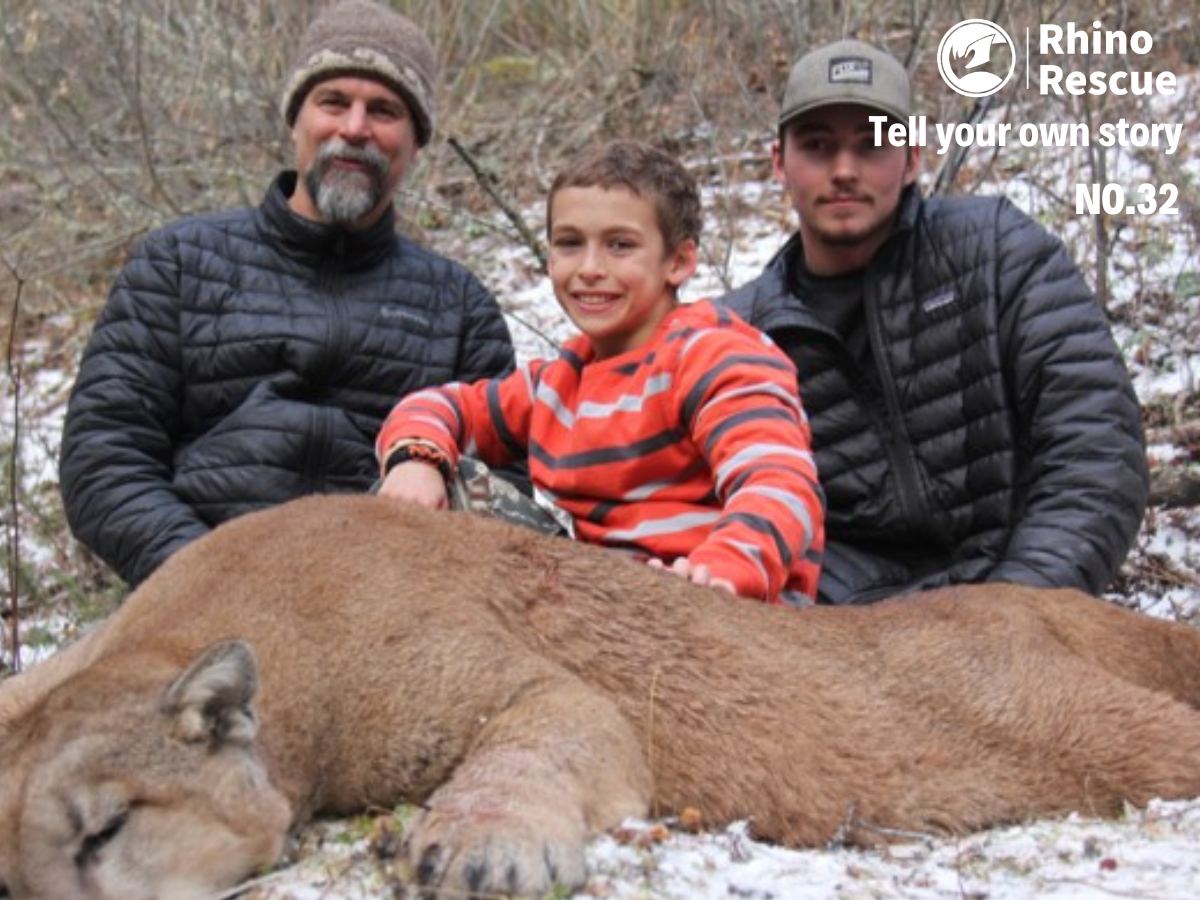Edixon José Salcedo González is a 36-year-old Venezuelan firefighter. He was born on 6 May 1987 in La Victoria, Aragua State, Venezuela, and lives and works in Peru.
Edixon graduated from the Bomb Technical Institute of the National University of Venezuela and became a professional firefighter in the Bomb Fire Brigade of the State of Aragua. During his studies, he was involved in pre-hospital emergency care and received rescue training from the Venezuelan Association of Emergency and Disaster Medicine.
Edixon worked at the Simon Rodriguez University Fire Department, where he served as Chief of Education and Chief of Operations. He developed several internal regulations for the fire service and created the Youth and Children's Fire Department. He is the only professional in the department with a degree in fire science and fire safety.
Since then, Edixon has worked in the Ambulance Department of the Bolivar City Health Department as a pre-hospital emergency technician and emergency preparedness coordinator, responsible for training community and institutional staff.

Two experiences that created a sense of mission
Edixon's choice to become a firefighter is inextricably linked to two childhood experiences.
The first was when he was about 12 years old, playing in a park with some friends, when one of them was accidentally injured. Edixon advised him to take off his shoes and put pressure on the wound with a sock or stocking. While Edixon was helping to compress his friend's wound, he picked him up by one shoulder and drove him to his friend's home. His parents later took him to the hospital, where doctors gave him six stitches and praised Edixon for doing the right thing in compressing the wound. The experience gave Edixon the satisfaction of feeling that he could use his hands to help someone in need. This feeling of helping others was very meaningful for a 12-year-old. It inspired an inner need in Edixon to help others.

The second experience occurred when Edixon was about 15 years old. A residential gas tank was leaking in front of his parents' house. Someone called the fire service. For a child like Edixon, seeing such an unusual scene on the road was a surprise in itself. He was even more impressed by the fact that while everyone was hiding, the firefighters calmly entered the house, removed the gas tank and took it away in a truck. This experience opened Edixon's eyes to what it means to be a firefighter. While everyone retreats from danger, firefighters move forward. They dealt with the incident in the most efficient and professional manner, putting everyone's mind at ease. This instilled in Edixon a high sense of aspiration and respect for the firefighting profession.
These two seemingly mundane childhood stories ignited a passion in Edixon for saving lives and the fire service. They inspired the vision and conviction that led him to choose this career. In this sense, these two seemingly insignificant experiences have deeply influenced and shaped Edixon's life.
Continuous self-enrichment and diligent learning
In 2016, Edixon registered the SINCAPRED Professional Training Centre in Venezuela as General Manager. The Centre aims to provide professional training to the staff of public and private institutions in the field of emergency services, rescue, disasters and public safety. This marks Edixon's venture and practice in the field of professional rescue training.
In 2017, Edixon designed a training course entitled "Comprehensive course on emergencies and disasters". Seventy-two trainees, including volunteer groups from three municipalities, hospital emergency network staff, civil defence and firefighters, signed up for the course, which Edixon supervised and received a medal from the trainees in recognition of his supervision. This further enriched Edixon's training experience.


In 2018, Edixon completed his degree in Fire Science and Fire Safety. During his studies, he was involved in pre-hospital emergency care, and in 2014 he received training in rescue and pre-hospital emergency care techniques from the Venezuelan Association of Emergency and Disaster Medicine. This gave Edixon systematic professional training in both theory and practice.
After graduating, Edixon worked for the Simon Rodriguez University Fire Brigade, where he served as Chief of Education and Chief of Operations. He also developed a number of internal management systems for the fire service and created the Junior Fire Department. As the only employee in the unit with a degree in firefighting, Edixon has played a central role in his work. This management and leadership experience has further enhanced his practical skills.


Edixon then moved on to work for the medical company attached to the ambulance service of the Bolivar City Health Department. He worked as a pre-hospital emergency technician and then as an emergency preparedness coordinator, where he was responsible for training and instructing community and institutional staff. This allowed him to build up his experience in the medical ambulance field as well.
In 2021, Edixon travelled to Peru to follow his vision and begin the formation of the international rescue team, SAR, a project that had been initiated back in 2017 while Edison was still in Venezuela. In Peru, he officially registered SAR as a non-profit organisation and became its commander-in-chief, and SAR also established national commanders in several neighbouring Latin American countries, with the aim of creating a transnational rescue network capable of responding quickly to natural or man-made disasters before they occur. Edixon plans to further expand SAR's size and reach. This marks the internationalisation of Edison's relief efforts.

Serving the People with Sincerity: Edixon's Humanitarian Sentiments
Edixon and his medical team always do their best to serve every life that needs them.
On one occasion, a 38-year-old woman was rushed into their medical centre late at night around 00:30 after being hit by multiple shrapnel. The entire staff was immediately involved in saving her life. However, due to the limitations of their own medical facilities and equipment, they were unable to perform the necessary surgical intervention on the patient. The ambulance that was supposed to transport the patient also had an accident and could not operate. It was decided that a family van would take over the responsibility of transporting the patient.
In the van, Edixon, along with other paramedics, provided support and artificial respiration to the patient for 18 minutes on the road. In the end, however, they were unable to save the woman's life. Edixon and his fellow paramedics were devastated by the loss of a life. It also made Edixon feel that his own medical knowledge and skills were inadequate, and that if he had been better prepared, the outcome might have been different.
Another case that Edixon remembers vividly is that of Melanie, a two-year-old girl who was brought to the centre unconscious after a fall. Admitted to the centre unconscious after a fall, Edixon noticed that she was showing signs of loss of vital signs and immediately started CPR. With the help of artificial respiration, the girl finally regained her breathing and heartbeat. The grateful mother hugged Edixon and thanked him from the bottom of her heart. Two weeks later, the mother brought her daughter back for another visit and asked Edixon to hold her newborn girl.
From these two rescue experiences, Edixon learnt once again that in the process of medical rescue, it is not possible for one person to decide whether a life will survive or die. What is more important is to have a humanitarian heart and dedicate oneself to serve every patient with utmost sincerity. It is this spirit of selfless dedication and service to the people that supports him on the road of medical assistance.
Edixon also recognises that when faced with failure and helplessness, one should not simply blame oneself or others. He is aware of the limitations of medical resources and technology, as well as the fragility and impermanence of every life. When we do our best but cannot change the course of life, we need to be more tolerant and kind.
Edixon chooses to be tolerant of those who would criticise and denigrate his peers. He believes that in this profession, it is essential to sharpen the mindset of the practitioner, positively change the mindset of everyone involved, and move the system and the profession forward. This process requires complementing each other's strengths and weaknesses, as well as teamwork and mutual support, rather than attacking each other.
Therefore, he is always mindful of his original goal, which is to make people's lives better and to improve the industry.
For Edixon, being a paramedic requires a high level of humanitarianism and a spirit of peer support. This is the core belief that keeps him going.
Edixon's thoughts on Rhinorescue
"Like everyone in the world, I'm resistant to new things." That was Edixon's attitude toward Rhino Rescue's medical products at first. He is instinctively wary and negative about anything new. But as a professional in the field, Edixon also gave Rhino Rescue a fair chance to shine.
Through hands-on testing, Edixon found that Rhino Rescue's products are made of hard-wearing, high-quality materials and are ergonomically designed for practicality as well as good looks. This has given Edixon the confidence to use the Rhino Rescue range in his work. In addition, Edixon prefers Rhino Rescue tourniquets and other products when training students in nursing skills. The students love the new products, which are attractive and functional.


Based on his own experience, Edixon has made suggestions to Rhino Rescue to further improve the product. For example, he suggested that more colours be added to the tourniquet range, or that a special version of the pink breast cancer tourniquet be designed. This positive feedback has helped Rhino Rescue to optimise its product design according to actual needs.
Edixon's approach demonstrates his openness to embracing advances in medical technology. He also plays an important role in his practice as a product tester and needs identifier, driving innovative R&D and product iteration and market refinement.
International Rescue Teams: A Continuation of an Ideal
Throughout his years of experience, Edixon has learnt that the profession requires compassion, discipline and selflessness. He has always been guided by the philosophy of "knowledge sharing is knowledge development" and has passed on what he has seen and learnt to his students without reservation. In his view, even if he saves just one person, his work is done, because he has already changed a life with his actions.
Because of the situation in Venezuela, Edixon left his career and moved to a new country, Peru. Although he is unable to continue working as a firefighter, he is confident that he will be able to contribute to his country by passing on his extensive experience and knowledge to the community. His plans for the future include training in local schools, designing a code of practice for rescue assistance, publishing a book summarising real-life examples of the profession, and expanding the reach of the International Rescue Squad to help more people in need.
Edixon looks to the future with confidence and anticipation. He hopes to be recognised for his work, and he looks forward to seeing his career grow and flourish, playing a greater role in protecting lives and saving lives. As a rescuer who pursues his dreams, Edixon J. Salcedo will continue to uphold the spirit of humanitarianism.
This is the current situation and outlook of Edixon, a lifeguard full of dedication and love.

